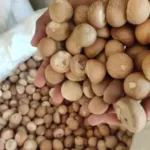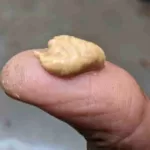Our farmland requires a maximum quantity of organic matter. Bio degradeble Municipal waste or city waste is the most important and cheap organic material available in the present situation. The lifestyle of our generation is changing. For different purposes, people are migrating to cities. Now, household waste in the city area is systematically collected and dumped in separate areas for safe disposal. It is available at a very cheap rate because of government incentives.
In the olden days, the area under cultivation was minimal. Now it has tremendously increased. Automatically, the pressure on organic matter has increased. Instead of sufficient organic matter, farmers are using chemical fertilizers. In this cultivation practice, the soil structure is depleting year by year. To retain the biological properties of the soil, it is necessary to add organic matter along with chemical fertilizers. City compost or municipal waste is now very cheaply available manure. Farmers can apply this in bulk quantity (Bulk manure is very essential for soil upgradation) for soil amendment.
What is in Municipal Waste?
City waste contains various domestic garbage like food waste, vegetable waste, dust, ash, etc. In terms of nutrients and fertilizer properties, municipal waste approaches manure. However, its decomposition rate in the soil depends on the ratio of its nutrients. For example, municipal waste with a large portion of domestic garbage and dust has a fast decomposing activity. Such waste can be used directly as manure without composting. Waste with paper, sawdust, etc. takes more time to decompose. For hygiene purposes, any urban decomposable waste can be used after it is turned into compost. Now, many microbes are available for decomposing purposes, and they will degrade almost all harmful pathogens. Almost all municipalities, Mahanagaras, now perform waste decomposing activities scientifically with a view to farm manure. It is mandatory for all authorities by the Government under the Swachh Bharat Abhiyan.

Nutrient Content in Municipal Waste:
The nutrient content in any organic matter depends upon the type of waste. If it is rich in content, the output is also rich. Here the organic matter’s role is soil amendment by bulk matter. In terms of dry matter, municipal waste contains an average of 0.6-0.7% of Nitrogen, 0.5-0.6% of phosphorus, and 0.6-0.8% of Potash (K). It also contains trace elements of micro-nutrients. Vegetable waste and food waste are rich in nutrients. If microbes were added during composting, its nutrient content would increase.
In vegetable cultivation, for quick availability, fully decomposing waste is essential. In the long term, for horticulture crops, minimum composting is also possible. Further composting will take place in the applied soil. Almost all waste collecting authorities now separate degradable and non-degradable wastes, reducing the chances of heavy metal content in compost.
Application of this Manure:
The application of municipal waste manure is the same as other composts. When applying to short-term crops, it is advisable to incorporate it into the soil when tilling. In horticulture, for long-term crops, applying it 1 meter away from the base is good. Half-composted manures should be applied in heaps to attain its full decomposition. Soil-borne earthworms and other visible microbes completely decompose this in situ.
When urban waste, litter waste, and agro-industrial waste are available in bulk quantity at a cheap rate, the application percentage will increase. If organic matter is applied in maximum quantity, the burden of chemical fertilizers is lessened. Organic content in the soil increases the uptake of chemical fertilizers and the water-holding capacity of the soil.
Now few reputed companies are entered to this venture. In future days every municipality will do it. Then farmers can get sufficient quantity of oraganic manures.











